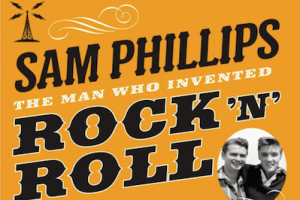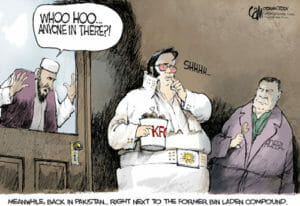Judy Garland at the End of Her Rope and Her Rainbow
A stunningly acted portrayal of big-screen icon Judy Garland’s final years serves as a cautionary tale for the Me Too generation.
Many over the age of 50 know Judy Garland as Dorothy Gale of “The Wizard of Oz.” Or perhaps the emotional cabaret singer celebrated as “The Elvis of the gays.”
In the future, it is likely that the actress and singer will be remembered as Renee Zellweger portrays her in “Judy.” Wraith-thin, with geological layers of eyeliner and mascara encrusting birdlike eyes, her bravura vibrato plays on the heartstrings of all within earshot. Zellweger’s embodiment of the woman whose creativity was fueled by her own self-destruction presents Garland as Hollywood’s sacrificial lamb to the celebrity gods.
Rupert Goold’s biopic opens in 1968. Accompanied by her school-age children, Lorna and Joey, Garland—financially insolvent and emotionally spent after a performance—is denied the keys to her suite in a Los Angeles hotel. She hails a cab, pops some pills, and takes the kids to the home of their father, Sid Luft (Rufus Sewell), who thinks she’s an unfit mother and demands primary custody. He’s right, but she doesn’t want to lose them.
She accepts a gig in London at The Talk of the Town, where she hopes to make enough money to pay for a house. In an astonishingly tender scene, Garland reassures her anxious children that when she returns, the three of them will live in a closet together.
Zellweger delivers such a nuanced and stunning portrait of the artist at the very end of her rope—not to mention her rainbow—that only in retrospect did I notice the gaudy frame surrounding it. At dramatic points, the film flashes back to show how the bright-eyed girl born Frances Gumm was used and abused by MGM Studios and became Judy Garland, this gimlet-eyed amphetamine and alcohol addict.
So immediate is Zellweger’s portrayal that the flashbacks seem almost redundant. Yet they do indicate how the studio systematically eroded her ego by reminding her that she was not pretty enough or thin enough, encouraging her dependence on amphetamines to lose weight and stay alert on set. Pushing her to do something about that nose. Encouraging her to act onscreen and off. In one chilling scene—metaphorically if not literally factual—the studio stages a birthday pool party for her in order to provide pictures to the press, all the while insisting that she not eat the cake or get her hair wet.
“Judy” is a cautionary tale for the Me Too generation. It’s critical of the Hollywood patriarchy that “managed” Garland by playing on her insecurities, sympathetic to the singer’s feelings that others—studios and ex-husbands alike—profited from her talents while keeping her dependent on their iron whims. From the age of 12, she was the meal ticket of her family of origin. Behold this indentured servant supporting her clan without ever developing her own internal structure and discipline.
Based on Peter Quilter’s play “The End of the Rainbow” and adapted to the screen by Tom Edge, Goold’s movie is handsomely made, edited and costumed. Like the adult Garland, the tone is profound without being maudlin, witty without being comic.
In this drama, in which there is no line between backstage and onstage, Zellweger’s feat is to convince us that Garland soldiered on, squaring shoulders and standing fast, singing her consoling songs, while all the while the world she once knew was consumed and reconfigured by earthquakes small and large. She neither resembles nor sings like Garland, but Zellweger nails her style and soul. And that glorious wit.
Your support matters…Independent journalism is under threat and overshadowed by heavily funded mainstream media.
You can help level the playing field. Become a member.
Your tax-deductible contribution keeps us digging beneath the headlines to give you thought-provoking, investigative reporting and analysis that unearths what's really happening- without compromise.
Give today to support our courageous, independent journalists.






You need to be a supporter to comment.
There are currently no responses to this article.
Be the first to respond.